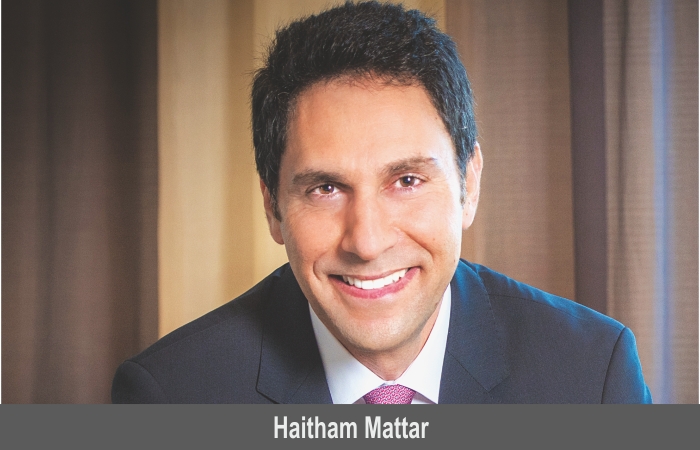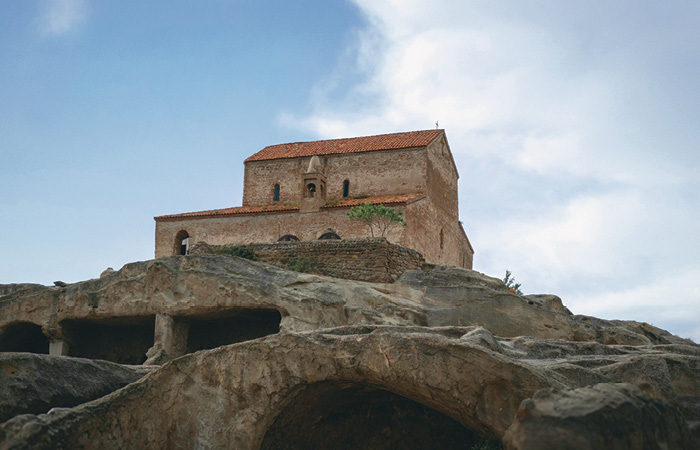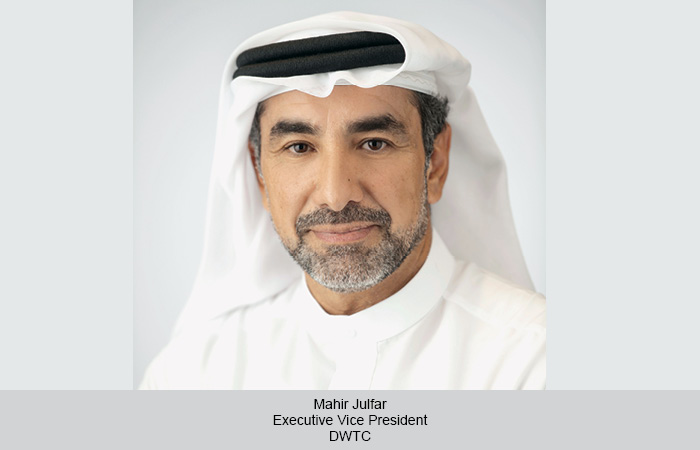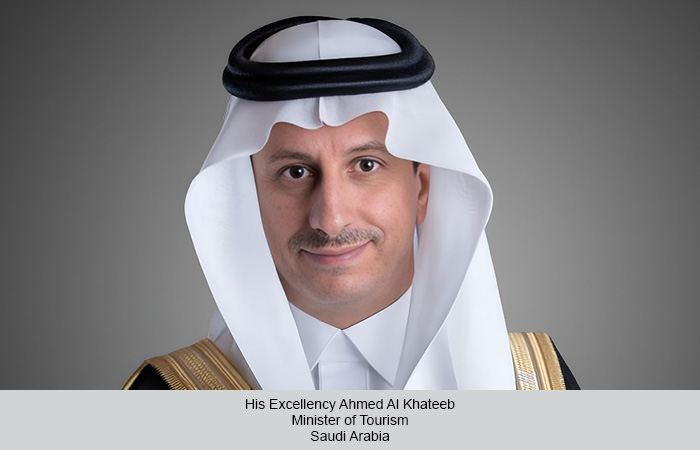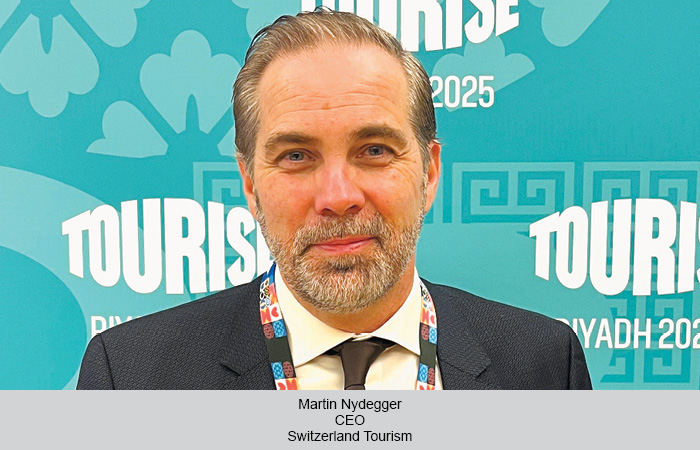One of the key elements to restart travel is to build traveller confidence. Haitham Mattar, Senior Advisor Ministry of Tourism in the KSA shares his views with TRAVTALK.
Emirates airlines is a great role model and I’ve traveled a couple of times between Dubai and Riyadh after the pandemic. I can tell you from this region, if we ensure that we enforce as safety, physical distancing and, sensitization guidelines across every touch point of the customer journey from travel end to end, we will start to instill confidence. I travel and I’m confident. I feel safe when I travel. And, I think more and more people are starting to feel safer, once they experience the travel.
The destinations need to spend more time in communicating. The nations and authorities are working together with the ministry of health, ministry of tourism collaborating and letting the public know that there’s a joint venture and a joint effort in bringing safety, to everyone who is traveling to these destinations. This region has a great opportunity and it is already leading into recovery. It has a great opportunity to be the first region in the world to recover, by simply focusing on hygiene, physical distancing, sanitization processes, and ensuring that those are audited in every hotel and every airline and in every retail shop.
SanJeet, CEO, DDPPL, said, “We have with us a very inspirational leader with a global vision. He has headed hotel chains as well as tourism boards and knows both sides of the coin, which are really important at the moment for the tourism industry to know where it is going. Today we are going to discuss with him what’s happening in
the industry and where it is headed.”
Haitham Mattar, Senior Advisor to the Ministry of Tourism in the Kingdom of Saudi Arabia, replied, “I would really refer back to a lot of research and studies that have been conducted recently. The forecast that we see from STR in the research that’s recently been done by Inmarsat in terms of the travel is that if we look at what has occurred from the start of the pandemic until now, we know up to 50 per cent of the hotels across the Middle East were closed. Now that’s down to about 10 per cent of the hotels closed across the Middle East. However, if you look at the trends, and surges and drops and occupancies, it’s changing every time we have news about the pandemic.
Occupancies across the region in the GCC forecasted by STR has been nudging 50 per cent. So the Middle East has been performing a lot stronger than Europe Asia-Pacific or even the United States. Trends show that cities are becoming less desirable because people don’t necessarily want to go to crowded areas. Some destinations that are offering nature, outdoor adventure experiences are becoming popular. We’ve seen also a big shift now for trends from both investors, as well as consumers looking more for what we call glamping or the luxury camp accommodation, which is becoming very popular across the world.”
Q So what you’re saying is the new learning for the industry is that they prefer areas with spaces as compared to the busy cities?
Haitham Mattar: The learning for the industry is and this is a question again, do we really continue to constrain ourselves as an industry until the vaccine is out there and not think about innovative ways of how we can live with this pandemic. It’s for industry experts to start thinking about innovative ways to restart M!CE, to restart business travel, to restart leisure.
Q Everybody’s talking about the new normal. When it comes to hotels, what does the new normal mean? Is it just going to be about hygiene or are there going to be more changes in this so-called new normal?
Haitham Mattar: The pandemic has taken the life out of hotels and has taken the life and joy out of travel in general. When you arrive at hotel lobbies that do not have any artifacts on the tables, it looks like, sorry to say, well, you’re walking into a hospital, right? Everything is disinfected. Everything is so, so clean, which is great, but it’s that sense of walking into a hospital, it is not any more the same as walking into a grandiose hotel lobby. The warmth of hospitality is taken away.
You’d think all this, hygiene and cleanliness, it should be the normal standard, and not something that we introduce because of a pandemic. Now of course, there’s a high cost of operations too. Before check-in and after check-out, hotels probably will have to raise their prices in order to cope with operational costs involved in maintaining cleanliness, hygiene and implementing safety protocols. Also, human interaction is minimal, you have waiters wearing gloves. At the same time, you have people in an open kitchen wearing masks & gloves. It’s comforting that things are becoming more and more hygienic, but I feel that human touch is missing from the experience of travel and leisure and hospitality.
Q Let’s move on from the hotels and talk about the tourism boards. At this juncture, what do you think they need to focus on?
Haitham Mattar: If we go back to Google searches, people are continuing to search for holiday destinations. They searched for holidays that they’re familiar with, and they yearned for it. As of now, destinations in some countries have decided to continue to spend on marketing. Telling people, we’re waiting for you to come back when this is over, telling people that look, it is important that we have to stop today. It is important that we are away from each other today. We’re always we’re stronger together, but today we’re stronger being apart, right? These are great messages that went out and people have continued to resonate with destinations sending such messages and have thought about visiting these destinations as soon as borders open. I think a destination strategy that was built prior to the pandemic will certainly need to be reviewed. Also, targets need to be revisited for them be more realistic. The communications and marketing strategy should focus on sending the right message about the destination and informing travellers about the exciting offers that await them, as soon as the borders are open.
I feel that constant communication is what’s going to make a destination a potential choice for consumers. We’ve seen those who have gone completely quiet, just waiting for things to improve. We’ve also seen those who have been extremely innovative, creative and are keeping in touch, right? Continuing to talk to consumers about the destinations and reminding them about the great offerings that they have, whether it’s outdoor, whether it’s nature, whether it’s culture or heritage, these are the touch points, right? And today the emotional touch points are destinations who have been very creative and have continued to be in touch with consumers.
 TravTalk Middle East Online Magazine
TravTalk Middle East Online Magazine
